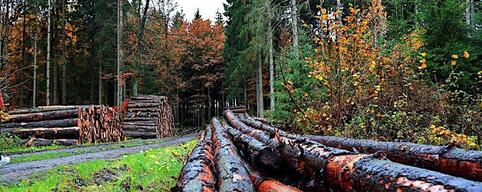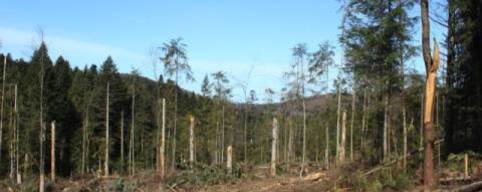

In the Czech Republic, a controversy has erupted over a newly proposed European Union regulation aimed at combating deforestation. Non-state foresters and wood-processing companies are sounding the alarm and calling for a fundamental revision of this legislative step, which is set to take effect next year. According to them, it brings more bureaucracy than benefit.
The EU regulation in question is widely perceived as an excessive bureaucratic burden. Wood processors point out that this new regulation will increase costs without delivering real benefits in the fight against deforestation. The documentation and control measures required by the regulation, according to critics, do not align with current needs or the existing oversight of wood sources in Europe.
Top representatives of the Association of Municipal, Private, and Church Forest Owners (SVOL) and the Association of Forestry and Wood-Processing Companies (ALDP) unanimously argue that the bureaucracy embedded in the regulation could demotivate producers and processors, in the spirit of “the more paperwork, the less time for real work.”
Moreover, with rising costs associated with legislative requirements, there is a risk that some smaller wood processors might cease operations, which could lead to undesirable economic and social impacts in forested regions. Companies and local communities could face further challenges if the regulation is implemented in its current form.
From this perspective, the question arises whether such administration is truly necessary, especially since the Czech Republic already has effective mechanisms for monitoring the legality of timber harvesting.
The Czech Republic has long recorded an increase in forested areas. Local initiatives and the presence of effective control mechanisms call into question the need for additional regulation from the European Union. Processors and forest owners are asking whether the regulation should be adapted to take into account already functioning local rules and standards.
Czech forests are characterized by responsible management, which not only ensures the protection of natural resources but also contributes to responsible reforestation and the sustainable development of forest ecosystems. With the growing area of forests in the Czech Republic, it is relevant to consider these facts in any new legislation focused on environmental protection.
Representatives of SVOL and ALDP have officially reached out to Ursula von der Leyen, President of the European Commission, with a request to simplify the regulation. They appeal for EU legislation to be aligned with already existing and effective measures at the national level, which have proven successful in the Czech Republic.
Another point of criticism is the insufficient effectiveness of the regulation in its current form regarding the import of timber and wood products from countries where illegal deforestation occurs. According to Czech organizations focused on forestry and wood processing, the regulation fails to address the real threats of illegal logging in non-Western countries, from where risky timber originates.
The reputable wood-processing industry in the Czech Republic should have legal guarantees that their products are not discriminated against on the European market due to those who circumvent the rules. There is, therefore, a need for a clearer and more effective framework for controlling timber imports from third countries.
Foresters and wood-processing companies are calling for fairness and logic in legislative measures that impact the European market. They declare that only truly functional regulations can bring long-term benefits not only for the environmental policy of the Czech Republic but also for the economic stability of the involved companies and communities directly affected by these decisions.



